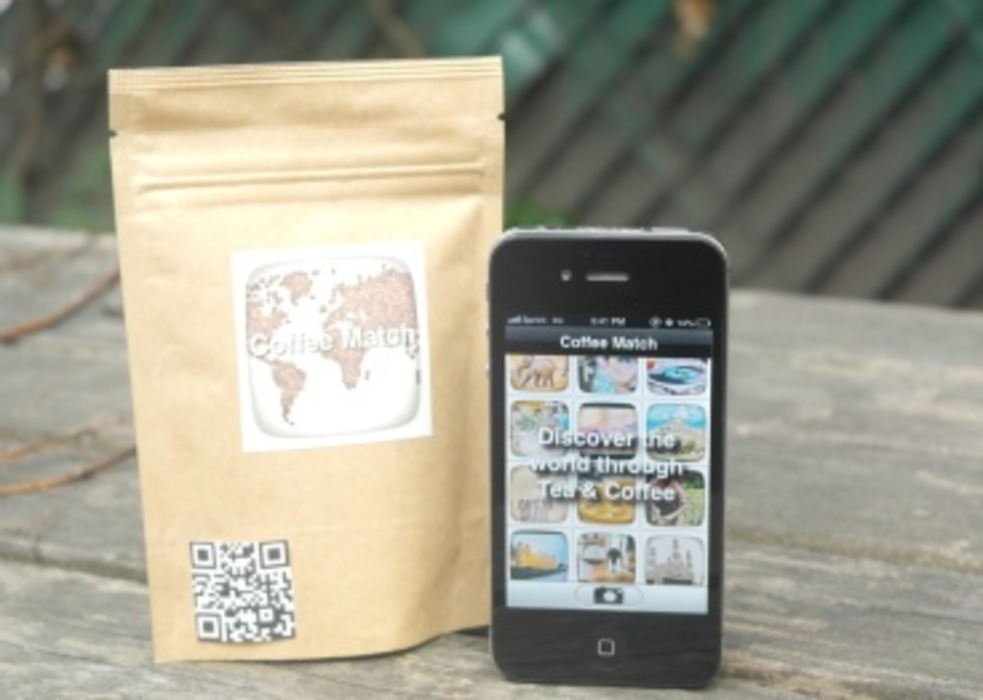For most marketers, a purchase signifies the end of the game. Once a product is purchased, the marketer’s job is done. Mission complete, high-fives all round. For Sumant Yerramilly, the youngest Direct Marketing News 40 Under 40 winner in 2012, that’s only the beginning. Too often, brands fail to communicate effectively with the customer after a purchase has been made, which Yerramilly considers a wasted opportunity.
With two other startups under his belt, Yerramilly’s third and latest venture, Coffee Match, aims to “change how people interact with the product once they buy it.” The idea for Coffee Match originated in Berlin, when Yerramilly was visiting his friend and business partner-to-be Chima Ike, a computer science graduate from Stanford, and was inspired by the intense passion Europeans have for coffee. The love of caffeinated beverages transcends all borders. But let’s face it: Most of us are woefully uninformed about the lands and hands that produced them. So Coffee Match was born.
Funded through a crowd-sourcing platform, Coffee Match sends subscribers a pound of coffee or tea in a bag with two QR codes. Scanning a code on a card inside the bag allows customers to unlock interesting content about the country their beverage of choice came from. The content includes images, language samples, recipes, as well as videos that chronicle Yerramilly and his team’s travels to various countries, where they sourced coffee or tea from local farmers.
“I went to India last month and had a chance to meet the farmers,” Yerramilly says. “You almost feel like you’re in India when you’re drinking the coffee.”
The second QR code is on the bag’s exterior. Once Coffee Match tea and coffee hit the stores, scanning the code will allow users to “meet” the farmer before making a purchase.
Yerramilly seeks to make the customer experience even more seamless: “QR codes are interesting, but I want to make it really easy,” he says. The Coffee Match team is currently developing a small Bluetooth chip to be embedded in the bag the beverage comes in. The user will receive content related to the country the coffee or tea is sourced from when they open a Coffee Match app in the proximity of the chip.
But Coffee Match is just the beginning; a testing ground of sorts for the technology behind the content. “It’s a huge opportunity for marketers, as it would completely change the way brands sell products,” Yerramilly says. “For the first time, brands will be able to understand more about the consumer.” The technology will enable brands to infer how much people actually interact with their products based on the amount of in-app time.
Yerramilly’s platform opens another venue for brands to engage in a dialogue with the customers, and be proactive about enhancing customer experience beyond checkout. Yerramilly argues that his platform can change consumer mind-set, and affect their choices in store.
“For example, if [Brand A] is reaching out to me with engaging content, and although [Brand B] has a better product, I’d be more inclined to buy the [Brand A] product, because it’s more proactive,” he says. “Ultimately, customer service is what wins [over the customer].”
One of Yerramilly’s concerns is whether customers would be interested in engaging with brand content, although he is positive that once they interact with the platform, it will become “addictive.”
Going forward, Yerramilly plans to license the platform to other verticals. Right now, CPG brands have no way of determining how often customers interact with their products; Yerramilly’s solution aspires to provide brands with concrete customer engagement data.
“[The solution allows brands to] extend their relationships with customers beyond the purchase. It opens up opportunities for remarketing by opening up a line of communication, which [brands] don’t currently have. It changes the consumer mind-set – it’s almost like a feedback system post-purchase.”








